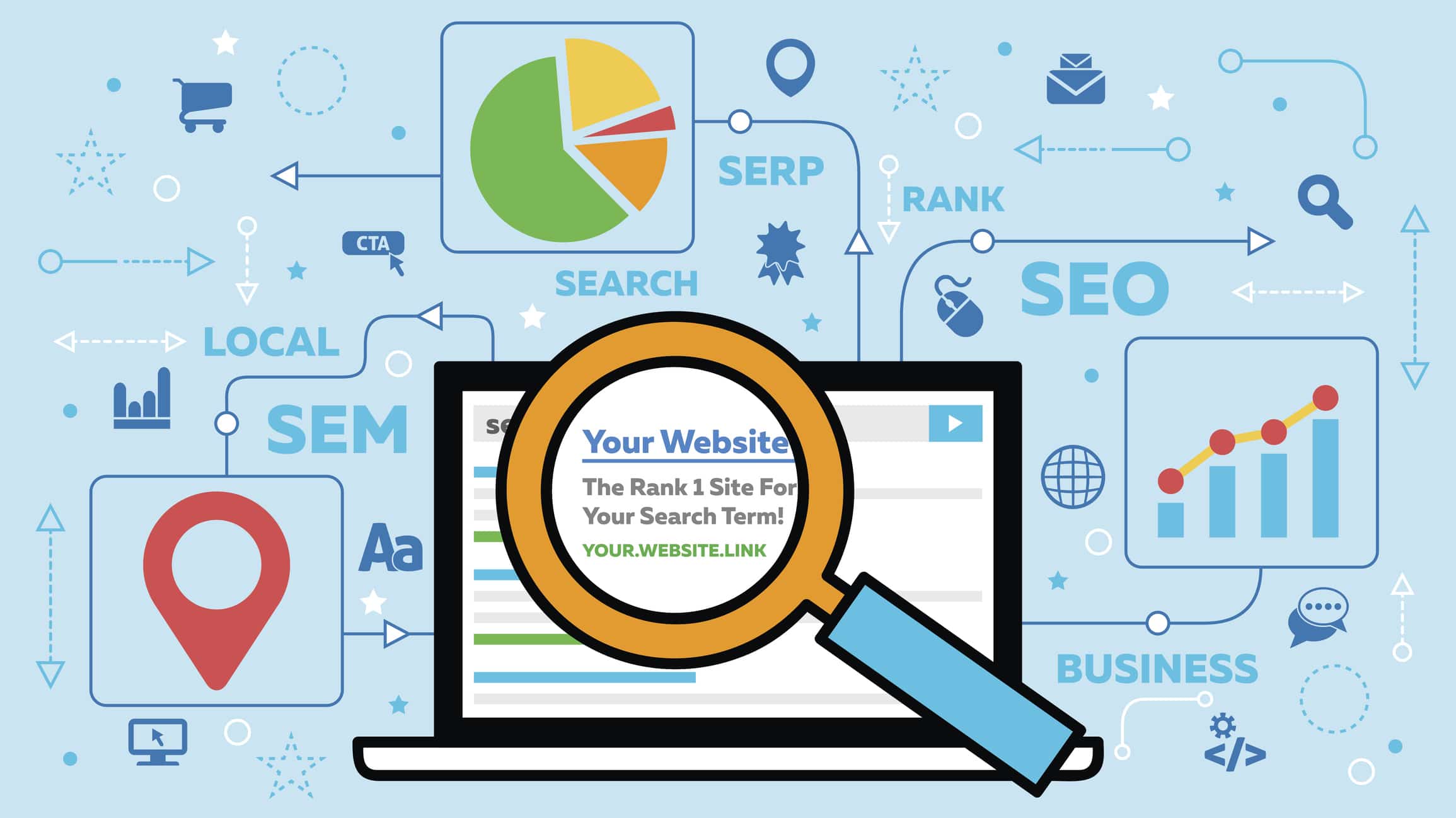Essential Tips For Optimizing Website Content For Search Engines: Don't miss the opportunity to optimize your website content for search engines and improve your online visibility!
Editor's Note: Essential Tips For Optimizing Website Content For Search Engines have published today. Optimizing website content for search engine optimization (SEO) is an important factor for businesses and individuals to understand. This is because search engines are the primary way that people find information online. By optimizing your website content, you can make it more likely that your site will appear in search results, which can lead to increased traffic and potential customers.
Our team has done extensive research, analysis, and digging into the latest information. And we have compiled this Essential Tips For Optimizing Website Content For Search Engines guide to provide you with the most comprehensive insight into Essential Tips For Optimizing Website Content For Search Engines.
Key Takeaways :
| Key Differences | Key Takeaways |
|---|---|
| Importance of SEO | Search engines are the primary way that people find information online. |
| Benefits of SEO | Optimizing your website content can improve your online visibility and lead to increased traffic and potential customers. |
| Tips for optimizing website content | We will provide you with essential tips for optimizing your website content for search engines. |
Let's dive into the main topic!
FAQ
This FAQ section provides authoritative answers to frequently asked questions related to optimizing website content for search engines, empowering you with the knowledge to enhance your online visibility and drive organic traffic to your website.

Top 10 Leading Search Engines UK 2022 - Search Engine Insight - Source www.searchengineinsight.com
Question 1: Why is it important to optimize website content for search engines?
Optimizing website content for search engines is paramount for improving your website's ranking and visibility in search engine results pages (SERPs). By aligning your content with search engine guidelines and user intent, you can ensure that your website appears higher in relevant search results, increasing the likelihood of users discovering your content and engaging with your website.
Question 2: What are the key elements of effective website content optimization?
Effective website content optimization encompasses multiple elements, including conducting thorough keyword research, incorporating relevant keywords naturally into your content, optimizing page titles and meta descriptions, using clear and concise language, and ensuring your content is mobile-friendly. By addressing these elements, you create content that resonates with both users and search engines.
Question 3: How frequently should website content be updated to maintain search engine optimization?
Regularly updating your website content is crucial for maintaining your search engine optimization efforts. Search engines favor websites with fresh and updated content, as it indicates that your website is actively maintained and provides valuable information to users. Aim to update your content on a regular basis, whether it's adding new blog posts, revising existing pages, or incorporating new insights and information.
Question 4: What role do backlinks play in website content optimization?
Backlinks, or links from other websites to your own, are a vital aspect of website content optimization. When reputable and authoritative websites link to your content, it signals to search engines that your website is credible and valuable. Acquiring high-quality backlinks can significantly boost your website's ranking and domain authority.
Question 5: How can I measure the effectiveness of my website content optimization efforts?
To gauge the effectiveness of your website content optimization efforts, track key metrics such as organic traffic, keyword rankings, and conversion rates. By monitoring these metrics over time, you can assess the impact of your optimization efforts and make necessary adjustments to further improve your website's performance in search engine results.
Question 6: Where can I find additional resources and guidance on website content optimization?
Numerous resources are available online to assist you in optimizing your website content for search engines. Consider referring to reputable sources such as Google's Search Engine Optimization (SEO) Starter Guide, Moz's Beginner's Guide to SEO, or Essential Tips For Optimizing Website Content For Search Engines for comprehensive guidance and best practices.
Remember, optimizing website content for search engines is an ongoing process that requires consistent effort and attention to detail. By implementing these tips and leveraging available resources, you can effectively enhance your website's visibility, attract more organic traffic, and achieve your desired online presence.
Refer to the next section of this article for further insights into optimizing website content for search engines.
Tips For Optimizing Website Content For Search Engines
Search engine optimization (SEO) is the process of improving the visibility and ranking of a website or web page in search engine results pages (SERPs). One important aspect of SEO is optimizing the website content for search engines. By following these tips, you can improve the chances of your website appearing in relevant search results and attracting more traffic.
Tip 1: Use relevant keywords
Keywords are the words and phrases that people use to search for information online. When you optimize your website content for relevant keywords, you make it easier for search engines to understand what your website is about and to display it in relevant search results.
Tip 2: Write high-quality content
Search engines prioritize websites that provide high-quality, relevant content to their users. When you create content for your website, focus on providing valuable information that is well-written and easy to read. Avoid keyword stuffing and other black-hat SEO tactics, as these can actually harm your website's ranking.
Tip 3: Optimize your title tags and meta descriptions
The title tag and meta description are two important elements of your website's HTML that provide search engines with information about your page. The title tag should be a concise and accurate description of your page's content, while the meta description should provide a brief summary of your page's content and include relevant keywords.
Tip 4: Use header tags
Header tags (H1, H2, H3, etc.) help to structure your website content and make it easier for search engines to understand the hierarchy of your page. Use header tags to identify the main headings and subheadings on your page, and include relevant keywords in your header tags.
Tip 5: Optimize your images
Images can help to improve the visual appeal of your website and make it more engaging for users. However, large images can slow down your website's loading time, which can harm your SEO ranking. To optimize your images, compress them to reduce their file size and use descriptive alt tags to provide search engines with information about the content of your images.
Tip 6: Build backlinks to your website
Backlinks are links from other websites to your website. Backlinks are an important factor in SEO, as they indicate to search engines that your website is credible and authoritative. To build backlinks to your website, create high-quality content that other websites will want to link to, and reach out to other website owners and ask them to link to your content.
Summary
By following these tips, you can improve the chances of your website appearing in relevant search results and attracting more traffic. Remember, SEO is an ongoing process, and you should regularly monitor your website's performance and make adjustments as needed.
Essential Tips For Optimizing Website Content For Search Engines
Optimizing website content for search engines involves understanding and implementing several key aspects that contribute to its visibility and ranking in search results. These aspects cover various dimensions related to content creation, technical implementation, and user experience.

A Complete Guide to Optimizing Content for Search Engines - Source www.abstraktmg.com
- Keyword Research: Identifying relevant keywords that users search for.
- Content Quality: Creating valuable, informative, and engaging content that meets user needs.
- Structure and Organization: Using headings, lists, and clear formatting to improve readability and crawlability.
- Metadata Optimization: Optimizing title tags, meta descriptions, and image alt tags for search engines.
- Technical Optimization: Ensuring fast loading times, mobile-friendliness, and adherence to technical SEO best practices.
- User Engagement: Focusing on content that encourages user interaction, such as comments, shares, and dwell time.

How to Optimize Your Business Website for Search Engines - Source blog.socialpill.in
These key aspects are interconnected and contribute to a holistic approach to search engine optimization. By focusing on keyword research, content quality, structure, metadata optimization, technical optimization, and user engagement, businesses can create website content that is both valuable to users and visible to search engines.
Essential Tips For Optimizing Website Content For Search Engines
Optimizing website content for search engines is essential to ensure that your website ranks highly in search engine results pages (SERPs) and attracts organic traffic.
Many factors can affect a website's search ranking, including keyword usage, content quality, and website structure.

Optimizing Your Website for Search Engines - Source businessopportunity.com
By following these essential tips, you can optimize your website's content and give it the best chance of ranking highly in SERPs.
Some of the most important tips for optimizing website content for search engines include:
- Use relevant keywords throughout your content.
- Create high-quality, informative, and engaging content.
- Structure your content in a logical and easy-to-read way.
- Make sure your website is easy to navigate and mobile-friendly.
By following these tips, you can improve your website's search visibility and attract more organic traffic.
Conclusion
By understanding "Essential Tips For Optimizing Website Content For Search Engines", you can take steps to improve your website's ranking in SERPs and increase your organic traffic.
It is important to regularly revisit and update your website's content to ensure that it remains relevant and engaging. By doing so, you can continue to attract visitors and improve your website's overall performance.